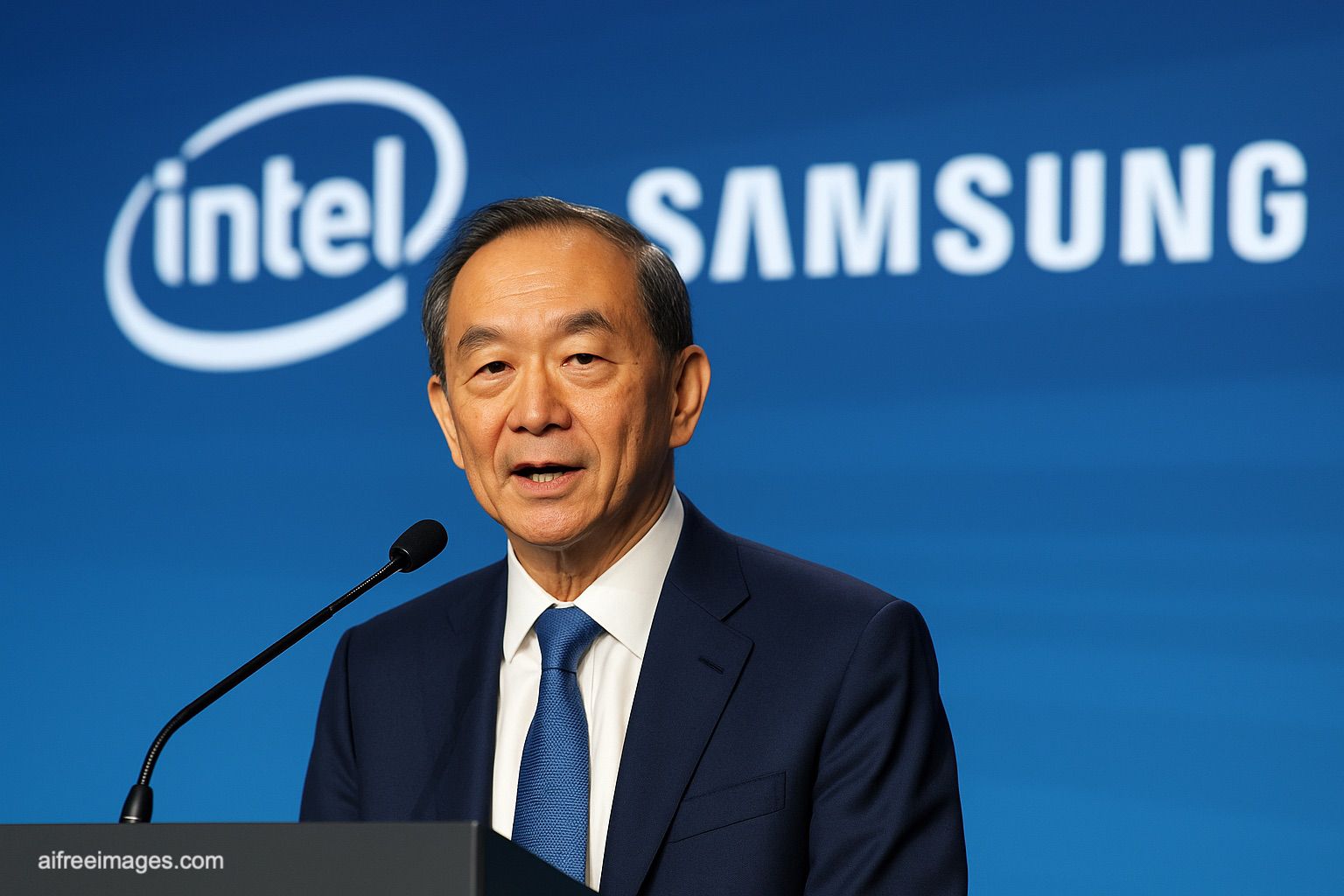Madrid. The global semiconductor industry may be on the verge of an unexpected alliance. According to reports from South Korean media and covered by the Taiwan Economic Daily, Samsung Electronics is exploring a strategic partnership with Intel—a move that has both technological implications and a clear political undertone.
Speculation arises just before South Korean President Lee Jae-myung visits the White House, where announcements of billions of dollars in corporate investments in the U.S. are anticipated. Among the delegation is Lee Jae-yong, Samsung’s chairman, who might seize this opportunity to strengthen ties with the Trump administration.
Intel takes center stage in Washington’s industrial and geopolitical strategy. The recent deal where the U.S. government acquired a 9.9% stake in Intel through an $8.9 billion investment has positioned the chipmaker as a key component of the “Made in USA” semiconductor initiative.
In this context, any gesture of support from Samsung toward Intel would be viewed in Washington as aligning with the goal of reindustrialization and reducing technological dependence on Asia.
An industry executive from South Korea, quoted by Etnews, explained clearly:
“If Samsung collaborates or invests in Intel, it would be seen as a gift to Trump. In return, Samsung would gain prestige and tangible benefits, such as more favorable treatment on U.S. tariffs.”
Historically, Samsung and Intel have been described as two “700-pound gorillas” in the tech ecosystem, competing in memory and manufacturing capacity. However, market conditions and political pressures could prompt a specific cooperation.
The idea of a “win-win” scenario isn’t far-fetched:
- Intel, struggling to regain market share against TSMC and facing difficulties in its foundry division, would gain capital, knowledge, and outsized manufacturing capacity.
- Samsung would strengthen its presence in the U.S., easing tariff impacts and solidifying its role in the American supply chain.
Currently, Samsung already manufactures some motherboard controllers for Intel and is building in Taylor, Texas, one of the world’s most advanced plants designed for 2-nanometer chip production.
While no official confirmation exists yet, analysts point to several possible areas of cooperation:
- Chip production licensing: Intel could license its glass substrate technology—an area it’s de-emphasizing—and Samsung could leverage this in its advanced packaging processes.
- Shared foundry services: Despite conflicting interests regarding Samsung’s 2nm nodes versus Intel’s 18A, targeted collaboration on certain products could benefit both.
- Packaging and testing: A partnership with Amkor Technology, a US-based semiconductor testing and packaging firm, is another option. Samsung, aiming to expand in this sector, might form a joint venture with Amkor, indirectly supported by Intel.
Beyond technology, the political background is prominent. Samsung seeks to ensure its U.S. operations avoid new tariffs or regulatory restrictions under the Trump administration. An agreement with Intel—the American-backed company—would demonstrate Samsung’s commitment to rebuilding the U.S. chip industry and bolster its image as a reliable partner.
However, risks are involved. Samsung and Intel remain direct competitors in multiple segments. A close collaboration could stir internal and external tensions. Manufacturing processes are often incompatible, and cooperation might be limited to specific areas. Additionally, tying strategies to Trump’s political agenda could backfire if U.S. policies shift.
Ultimately, a Samsung-Intel alliance could signify a paradigm shift in the semiconductor sector, illustrating how geopolitical factors are transforming traditional rivalries into strategic partnerships. Although no official announcement has been made, market speculation underscores how deeply politics and chip industry dynamics are intertwined today. Trump’s “America First” policy is reconfiguring investments and forging new global alliances that a decade ago would have seemed unimaginable.
FAQs
Why would Samsung be interested in teaming up with Intel? Mainly for political and strategic reasons: improving its position in the U.S., avoiding potential tariffs, and being seen as a key partner in rebuilding the local chip industry.
What does Intel stand to gain? Besides capital and technological cooperation, Intel would enhance its image as a global partner with international backing, especially in a period when the U.S. government has taken direct stakes in the company.
Could this alliance impact TSMC? Yes. While TSMC remains the leader in advanced nodes, a Samsung-Intel alliance could exert pressure in packaging and foundry segments, offering an alternative backed strongly by U.S. policy.
When might this cooperation be announced? Speculation suggests during or after South Korean President Lee Jae-myung’s visit to the White House, though no official confirmation exists.
via: money.udn.com

